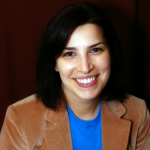
The Next Normal: Mental Health
Stigmatization is a major issue that underlies the high prevalence and inadequacy of treatment of mental health problems. In addition, research has identified social isolation as one of the major contributors to mental health problems. How can public health practitioners contribute to the destigmatization of mental health problems and to decreasing social isolation through programs and policies that promote human connection and support in their communities?


Register
Course Information
- Audience: Public Health Professionals
- Format: Webinar
- Date/Time: Tuesday, November 16th, 2021 4:30 PM – 5:45 PM EST
- Price: Free
- Length: 1.25 hours
- Credential(s) eligible for contact hours: Sponsored by New England Public Health Training Center (NEPHTC), a designated provider of continuing education contact hours (CECH) in health education by the National Commission for Health Education Credentialing, Inc. This program is designated for Certified Health Education Specialists (CHES) and/or Master Certified Health Education Specialists (MCHES) to receive up to 1 total Category I continuing education contact hours. Maximum advanced-level continuing education contact hours are 1. Provider ID: 1131137 Event ID: SS1131137_NNMH.If you are not seeking a CHES/MCHES contact hours, if you complete the post-test and evaluation, you will receive a Certificate of Completion. The Certificate will include the length of the course.
- Competencies: Data Analytics and Assessment Skills
- Learning Level: Awareness
- Companion Trainings: None
- Supplemental materials:None
- Pre-requisites: None
About this Recording
The COVID-19 pandemic was coupled with an increase in poor mental health and substance use worldwide. How will we address mental health moving forward given what we learned during the pandemic? This program is a part of “The Next Normal” series, designed to take a moment to pause and ask, as we emerge from the pandemic, what we have learned and why, in order to promote the health of all, we cannot return to pre-pandemic normal.
What you'll learn
At the end of the recording, participants will be able to:
- Discuss mental health as a public health problem in the US, even prior to COVID-19 pandemic.
- Describe sources of psychologic distress during the pandemic and resulting effects on mental health problems in particularly affected populations
- Discuss the disproportionate impact of COVID-19 pandemic on the mental health of Black Americans and persons with disabilities and strategies to address it going forward
- Discuss systems-level barriers to accessing mental health services that must be addressed
- Identify 4 specific actions that can be taken to improve the “next normal” in public mental health"
Moderator

Lynn Jolicoeur
@LMJOLICOEURProducer and Reporter, WBUR

M. Daniele Fallin
Chair, Department of Mental Health, Johns Hopkins Bloomberg School of Public Health
@FALLINDANI
Briana Mezuk
@UMICHSPHDirector, Center for Social Epidemiology and Population Health, University of Michigan

Courtney Thomas Tobin
@DRTHOMASTOBINAssistant Professor, University of California Los Angeles Fielding School of Public Health

Katie Wang
@YALESPHAssistant Professor,
Yale School of
Public Health
Lynn Jolicoeur is a senior field producer, reporter and editor at WBUR. As field producer, she researches and writes host interview segments and feature stories on a vast array of topics for the signature early-evening news program, All Things Considered. Lynn also reports for the station’s local broadcasts (with some stories airing nationally on NPR, as well). She has developed beats covering mental health and homelessness, and most recently she’s reported on the pandemic’s impact on both. Lynn is particularly passionate about reporting on the issue of suicide. In 2015 she produced and reported a 15-part, yearlong series on the suicide crisis. She has reported in depth on efforts to end chronic homelessness and weaknesses in the system for sheltering and housing adults experiencing homelessness. Prior to working at WBUR, Lynn was a television reporter for 18 years – most recently at Boston’s WCVB-TV Channel 5. She covered areas from crime and the justice system to politics, medicine, and social issues.
Subject Matter Experts
M. Daniele Fallin, PhD, studies how environments, behaviors, genetic variation, and epigenetic variation contribute to risk for psychiatric disease, with a focus on autism.
Dr. Mezuk is the Director of the Center for Social Epidemiology and Population Health and is an Associate Chair in the Department of Epidemiology at the University of Michigan School of Public Health. She is a psychiatric epidemiologist whose research focuses on understanding the intersections of mental and physical health. Much of her work has examined the consequences of depression for medical morbidity and functioning in mid- and late-life, with particular attention to metabolic diseases such as diabetes and frailty. She is also the Director of the Michigan Integrative Well-Being and Inequalities (MIWI) Training Program, a NIH-funded methods training program that supports innovative, interdisciplinary research on the interrelationships between mental and physical health as they relate to health disparities. She is committed to translating research into practice, and since 2013 has collaborated with partners at the YMCA on evaluating and augmenting their diabetes self-management programming to incorporate psychosocial aspects of health. Finally, she writes a blog for Psychology Today called “Ask an Epidemiologist."
Dr. Thomas Tobin is trained as a medical sociologist and use mixed-method and transdisciplinary approaches to examine psychosocial sources of risk and resilience and their impact on the psychophysiological health of Black Americans across the life course. Summary of Research: A central focus of Dr. Thomas Tobin’s research is the conceptualization and assessment of race-based stress and coping experiences among the U.S. Black population. In one study, Dr. Thomas Tobin found that experiencing subtle or ambiguous discrimination increases Blacks’ risk of poor psychological and physiological functioning and may be more detrimental than more blatant discriminatory treatment. This work motivated the development of Dr. Thomas Tobin’s “Racial Self-Awareness Framework of Race-Based Stress, Coping, and Health,” which clarifies environmental, sociocultural, and behavioral health processes by spotlighting “racial self-awareness” (RSA), the heightened sense of awareness of one’s racial minority status within a majority context. Results from a recent qualitative study suggest that (1) RSA represents additional cognitive effort that is physically and emotionally taxing, (2) RSA shapes Blacks’ perceptions of and responses to general and race-based stressors, and (3) Blacks employ a range of behavioral coping strategies to reduce the strain of RSA.
Dr. Wang’s research broadly focuses on the role of stigma as a psychosocial determinant of mental and behavioral health disparities among diverse marginalized populations. She received a K01 mentored scientist career development award from the National Institute on Drug Abuse to investigate the associations among mental illness stigma, emotion dysfunction (i.e., intense, prolonged negative affect and/or difficulties in regulating one’s emotions), and substance use among adults with depression. Some methodological approaches utilized to accomplish this research include psychophysiological assessments (e.g., heart rate variability, salivary cortisol) and ecological momentary assessment (e.g., daily diaries). Dr. Wang is also involved in a number of projects that examines the health inequities facing people with disabilities, including a mixed-method study on the mental health impact of the COVID-19 pandemic on the disability community.
Registration
Select the Enroll Me button below to register for this recording. If you have any trouble accessing the recording, contact support@nephtc.org.
Acknowledgement: This project is/was supported by the Health Resources and Services Administration (HRSA) of the U.S. Department of Health and Human Services (HHS) under grant number UB6HP31685 “Regional Public Health Training Center Program.” This information or content and conclusions are those of the author and should not be construed as the official position or policy of, nor should any endorsements be inferred by HRSA, HHS or the U.S. Government.

